Morgan Jenness at Double Edge Theatre with Stacy Klein, at right. (Photo by Maria Baranova)
Morgan Jenness, a force of nature who nurtured and inspired countless theatremakers as a dramaturg, agent, and activist, died on Nov. 12 at the age of 72. Taylor Mac’s full memorial tribute is here; below are tributes from others whose lives Morgan touched. A note about pronouns: In recent years, Morgan used the pronoun “they” but didn’t seem to mind “she,” so we’ve let each writer use the pronoun for Morgan they were accustomed to.
Tia Morgan
Morgan was such a huge part of every aspect of my art life. She met me before I was writing plays, coming to see me do my performance art at a basement space in Los Angeles, where I was in a black slip roller skating. She spoke to me like I mattered.
She gave me next steps to follow in making a career. She made sure I studied with María Irene Fornés. She introduced me at my New Dramatists induction. She wrote the foreword to my piece in Extreme Exposure: An Anthology of Solo Performance Texts from the Twentieth Century. She read everything I wrote and gave me notes. She focused me when I was unfocused and sabotaging. It was not uncommon for us to sit for four, five hours and talk art and inspiration. She was a friend. Then a mentor. And finally, family.
I had so many rich and good dramaturgical conversations with Morgan, but the one that mattered most was the day my father died. A year after living with him at St. Jude Hospital in Orange County, California, nursing him back to health, his illness returned. I stayed with him the whole day, then when he passed, I brought my family in, and we all mourned together. Afterward, one by one, they peeled off to be with their own families, not realizing that the last pieces of business were left to his single queer son. I kept it together for everyone, and then on my drive home, late in the evening, I pulled up behind an empty KFC and called Morgan in New York, and she of course answered. I wept uncontrollably, unable to even speak, and she listened. I was completely lost, as I had often been in the creation of my art, and like the great dramaturg/mentor/public mother she was, she walked me through this process as well. Giving me context, focus, and the possibility of how I might go on. Then she told me the story of her adoption, in search of family, and making one in the theatre. She walked me through my grief.
She embodied the concept of artist/citizen that I embrace. We had many highs and lows, which is to say that we had an extraordinary life together. I understand now why she was loved by so many. She simply became a relative. My Tia Mame. My Tia Morgan.
Luis Alfaro, playwright, director, and performance artist
Serious Tickling
I have a photograph that I treasure.
It’s not in focus, not posed. I have no idea how or why it was randomly captured at a birthday party in the early 2000s. My back is turned away from the camera, my head in profile.
Looking on is the sly, smiling face of Morgan, who has one hand nuzzled in my left armpit, and if the photo weren’t still, witnesses would be able to tell that Morgan is actively, lovingly, even mildly aggressively tickling me.

Active, loving, mildly aggressive tickling. That’s the sharpest memory I carry of my mentor for over 20 years, my boss for over 10 years, my favorite agitator forever.
During my years as Morgan’s assistant, we saw countless readings and productions together.
Tickling abounded there as well.
In the middle of really, really good or really, really bad moments, I’d feel the wise heat of Morgan’s gaze fixed on me, daring me to look over and psychically share just how much of a revelation or just how much of a missed opportunity we were co-witnessing.
Calls out of the blue tickled. Texts tickled. Emails tickled.
The constant signing off of “xo Auntie M” tickled.
Sometimes, the tickling was nudging me to do more, to be more.
Often, the tickling was assuring me that I had a champion, no matter what.
Always, the tickling was reminding me to take the utter ridiculousness of it all utterly seriously.
I wish I could remember what was actually being discussed as that random photo was snapped, but I’m not sure it matters. I am simply grateful to be part of the unimaginably long line of folks who will eternally feel Morgan’s tickles, in our brains, in our hearts, in our souls, and, at least for me, even in my armpit.
Micah Bucey, minister and author
Ghosts and Care
I’m in the basement at the Public.
I’m down here by the lockers and my lipstick is slippery and I don’t love my shoes. I’m about to go onstage and I’m thinking about Morgan.
Last time I saw M, they were sitting in bright sunlight on a Sunday afternoon, so pale I could see their heart beating. I think I made too big a deal of their presence; M didn’t want to be celebrated, and I felt like a brute hugging her. Gaza was really getting to her and no amount of theatre, no amount of creativity, was going to help. Not really, not this time. I could feel the discomfort in her body, the reckoning, and we stood there shaking our heads. It was the first time I remember her having not much to say.
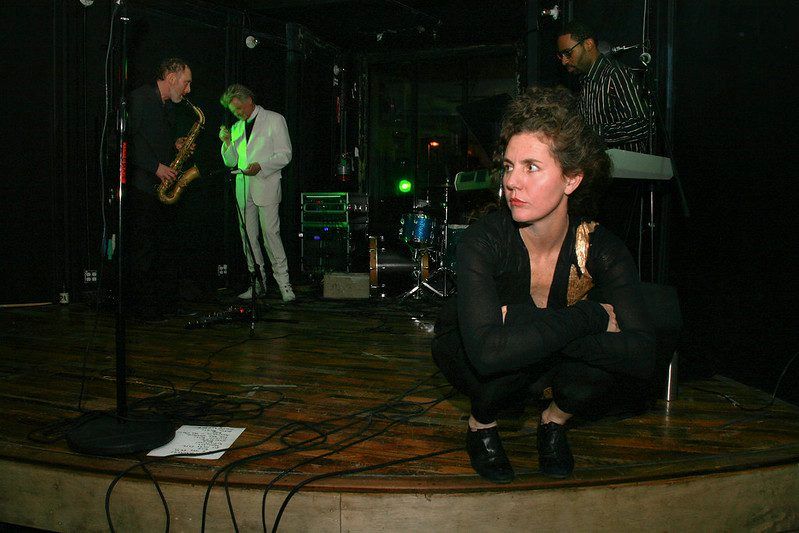
I want to say something about care now, and how communities of artists who practice sensitivity should be attentive to the tremendous toll being sensitive takes on the body, our own and each others’, so take care… But does that really need saying? Because maybe—and Morgan’s life made this plain—we actually need to be just as attentive to the conditions in which we live, and the conditions our living creates, until taking care means something much larger than “of ourselves.”
One thing I love about stage life is the way ghosts come around and slip through the veil. Who knows where that melody came from? And that other voice you heard? That might actually be a great artist like Morgan telling you something. So listen when you can, when you are ready.
I’m in the basement of the Public as I write this, and tomorrow is World AIDS Day, and I am in a beautiful crowd of ghosts and pretty soon we’re all going up to get on stage and I’m hoping Morgan is going to show up and help us figure out what the fuck we are doing!
Savitri D, director, the Church of Stop Shopping
The Conversation
Talking out loud to my friend Morgan, who sometimes spoke softly…
I never learned enough from you, dammit! I know that we loved Prince and Wim Wenders and Bernstein and Patti Smith; saw endless films in cinemas all over the city—right up until six days before you died (not to mention all the bootleg movies you had on hundreds of VHS tapes). For years we rode the Circle Line on Labor Day and the Wonder Wheel in the spring. I think I turned you on to dim sum when the towers went down.
Mmm, my favorite. Always fabulous. (But I don’t think it was you.)
(It was me.) I visited you during your very first teaching gig at Breadloaf, where every morning you’d levitate out of bed in a panic and read Aristotle out loud, repeating it in whispers over and over until you had to start class. For years later we argued Plato and Poetics—you must have known that I was actually taking class from you all along. In the early ’90s, you basically kept me from going to med school. I didn’t realize you dragging me to see theatre—when I was trying to leave it—held your silent presumption that I would ultimately change my mind. Which I did, you presumptuous bitch.
(Morgan’s little wheezing chuckle.)
Three months later, there was a Foundry Theatre and a play by David Hancock, who you’d taken me to see at Coney Island during a sleet storm!
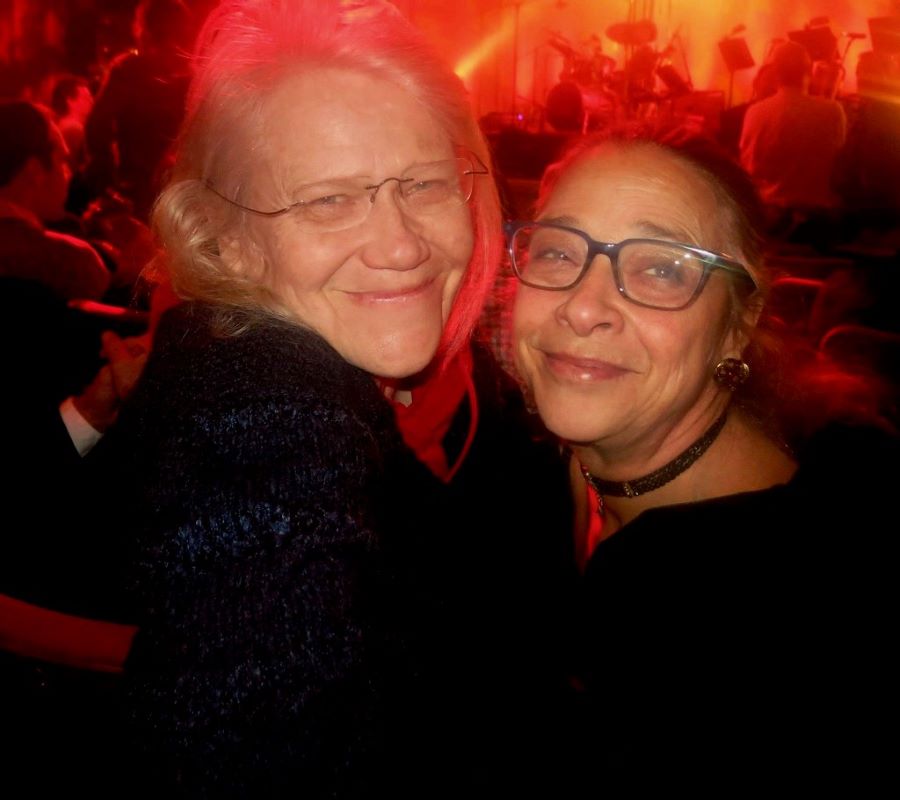
Still, we rarely talked about theatre at all. Even when the Foundry was underway, our conversations were always about this incredible, fucked-up, imperiled world. (Back in the ’80s you were my only friend in the theatre with whom I could speak capitalism. There was no one we knew in the theatre then who would even consider using the word.) Sometimes we’d both just get angry. I too often stayed angry. But you’d go to bed for a day or so, figure out what to do or reach for next, get up and propose in various ways—to the enormous variety of people you know—how we might go about making the world and ourselves better somehow. Which you did throughout your entire life.
We argued over hope for years too, didn’t we? You just would not trust the concept. Though you came to the Foundry’s Hope conference, skulking at the back of every event that weekend (I still have the video) and flirting with some of the delicious guests at mealtimes. Was it your FOMO addiction, I wonder?
Maybe then…but I cured myself of that since, haven’t I?
I’m running out of time. And space…aren’t I?
Yes.
Okay, fast forward to September 2011: Occupy, Zuccotti Park. You’re there. You landed. Another new planet for you to explore. No more agenting, hallelujah. An away from theatre—a different vision—a metaverse, maybe—new people—world changers—again different—a brand new life beside your theatre life for all the years to come. You learned from them. It was exciting to watch. And you, the elder, inspired the hell out of them. You knew everyone in theatre and you inspired the hell outta them too. Did you invite them to come and meet people and puppets and getting arrested…
I did try a little, but I’m not you.
I know…I could just never give up on trying to invite artists to the dialogues or community projects, to what was amazing and new and completely otherwise in the world—a metaverse, maybe. It still kind of breaks my heart when I think about it. The past is such a stubborn thing.
Yup, history doesn’t help at all. Aristotle said, “Poetry is more philosophical and more serious than history.” That’s more up your alley.
Really? I never heard that. Is that in Poetics?
I gotta go, Mel.
You taught me freedom, Morgan. “Who do you think you are? I’m the one who’s doing it.” You taught me that—remember? Remember that?
(Silence.)
I have terrible separation anxiety … you know I do …
I know. You’ll be fine.
Okay. So is it forward then…now?
It is. Forward. It has to be. You know that.
Melanie Joseph, theatremaker and founding artistic producer of the Foundry Theatre
How Did She Know?
I first met Morgan in person at a TCG conference in California, where she was one of maybe eight people who attended my talk on living culture and sustainability. I thought she must be bored out of her mind because she was on her phone the whole time, but later I realized that was just Morgan. Her lightning mind was always making connections. Any word spoken led Morgan to look up and connect to 20 other lines and circles, and all thoughts became an infinite spiral.
Next she came to Double Edge for a NEFA site visit of our travelling performance spectacle rehearsal of the Odyssey. She was fascinated by the land, the spectacle, the myth, the puppets, the engagement of the community. But she blew my mind apart in identifying the crucial missing element: Odysseus’s loss of his sailors in the war.
How did she know and identify that? And how did she know in every subsequent performance (she became our Art Justice Creative Consultant—we were not allowed to call her dramaturg), how did she always know the source of the work? In fact, my twin, as we called each other, along with sister Nina Mankin, could delve into my mind and extract the essence of any work, from Grand Parade to Once a Blue Moon to SUGA to The Bacchae to Leonora, which we were playing as her spirit flew away from this reality. And so much in between.
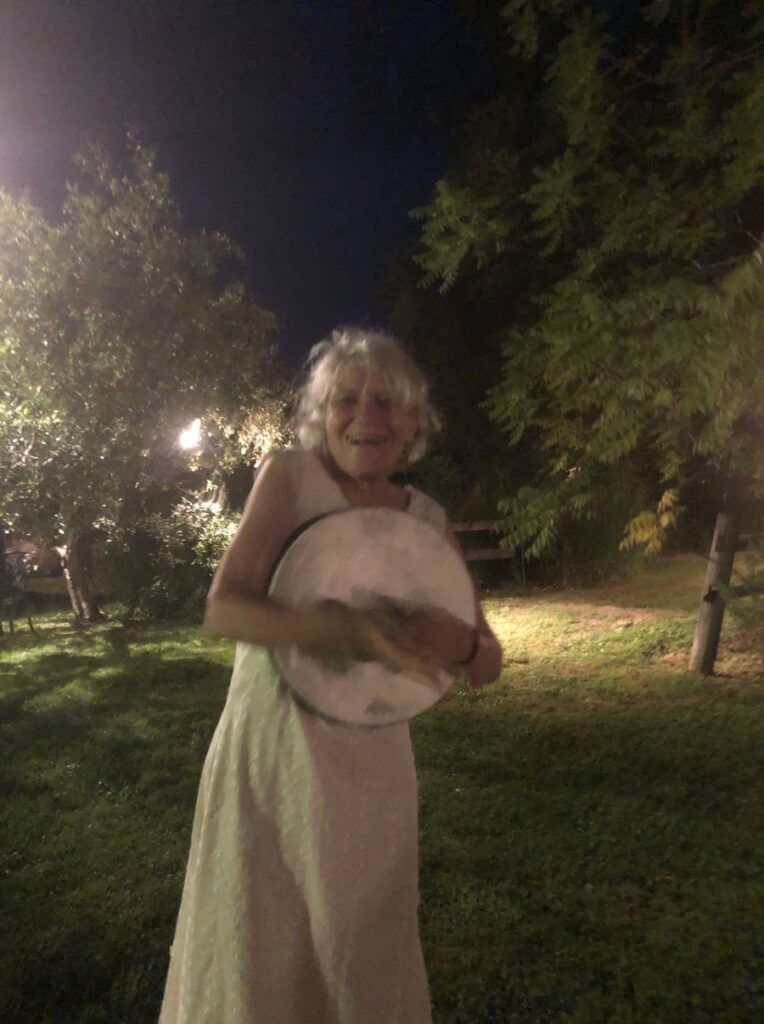
Morgan loved the Farm; she buried her cat near the river. She performed in our 6 Feet Apart All Together spectacle at the beginning of Covid, singing in her beloved labyrinth, which she walked around constantly every time she was at Double Edge. She joined everything: puppet making, soccer, training, singing, teaching, swimming in the lake, spending time with every single actor. But of course at the end of her residencies she couldn’t wait to get back to New York.
Morgan had a gift of giving her wisdom gently, her criticism precisely, and her principles fiercely. Her stories about herself were expertly interwoven with the very ancient lore she knew so well, until it was impossible to distinguish between the mythological Morgan and the one attending an all-day sushi eating festival the last time I saw her.
She and Muriel and Josie and Carlos and I planted two oak trees for Kevin Tarrant after his passing, in the place Morgan worked with Muriel and her family during her residency. All of her Double Edge family will gather to plant Morgan’s tree. Is it oak or willow or whispering aspen, in the serpentine labyrinth where she hearkened us back to those matrilineal callings from deep inside her spirit?
Stacy Klein, founding artistic director, Double Edge Theatre
Everything Everywhere All at Once
She was everywhere. Always. All at once. Like someone who’d found all the portals and owned a Time-Turner. She saw every reading and production, was present at the birth of every historic theatre thing of the past 50 years. She knew every theatre artist—not casually, but with that strange, determined knowing of a prophet peering into your deepest potential. Everyone’s Own Private Dramaturg.
I was never one of her subjects, but we were fellow travelers for 40 years, side by side at plays and workshops and gatherings, sometimes at my family Seder table. She was my Weird Sister, as in the play that must not be named.
Sometimes I wouldn’t understand a word she said. I thought in three dimensions, and she was operating on many more—spirit, archetype, historical precedent, political theory, astrological, dream space. Her spirit-self lived on multiple planes, too. She became more Jewish in later years, but she swam among religions, being at once WASPy, Buddhist-minded, Hindu-inflected, Indigenous-rooted, and Wiccan AF, for all her burgeoning Yiddishkeit.

She moved among earthly realms with similar fluidity, as intimate with L.A. as New York, with puppets as people, ensemble experiment as solitary playwriting. She was at home on the Double Edge farm in Ashfield, Massachusetts, and at city street protests. She osmosed from art to politics, occupying Wall Street the way she occupied the theatre: with ferocious dedication, throwing her feral, tensile body into every battle. She would have—I believe—let tanks roll over her, rather than quit the fight.
Wherever she roamed, her clarity of purpose was compass. She never served a theatre—as she famously told her papa/mentor/first boss Joseph Papp when he asked why she was helping playwrights the Public Theater had rejected: She served the theatre. She moved from one professional affiliation to another with her eye not on the job but the artistic prize. (Her antipathy toward commerce made her a comically ill-suited and mercifully short-lived agent.)
She cared for the soul of the work and of the artist, movingly clear in her attendance on María Irene Fornés through decline, death, and posthumous legacy. Likewise, her eye was on the soul of the world, which is why she rallied ceaselessly against its structural wrongs. When did she rest while teaching at four or five colleges each semester? When did she sit and read, she who read everything? How did she prepare for the work while always being in it?
She was a New York story all her own: born in a post-war Germany, adopted and brought to America in a way that smacked of abduction, washing up in Gotham with little more than a high school diploma, renaming herself (after a sorceress), teaching herself everything that mattered, inventing a life in a role that still no one can define. (What is a dramaturg anyway?) Self-created, mythic, seminal, despite lacking a title or institutional imprimatur. Just Morgan. (Last name rarely required.)
Morgan took part in a three-day artistic retreat I organized at Soho Rep in 2019. For one session, playwright Phillip Howze prompted us, simply, to create a utopia. We beautified the black box theatre and each other, made musical sounds, offered collegial care and quiet and kindness. I think of her there, captioned by the words of others, which seems apt for someone who lived so intimately with plays she didn’t write. In one photo Morgan wears, taped to her shirt, a sign Truth Bachman made: “Curiosity is a beautiful gift.” It could have been her mantra.
Another impromptu message I saw recently sums up Morgan’s own utopian vision, an invitation to wholeness and spiritual connection in all the realms: “Your Whole Self is Welcome Here.” Remembering Morgan now, I would add that “here” for her meant “everywhere.”
Todd London, author and teacher
Truth and Alchemy
Morgan was alchemical. We lucky ones knew the magic of her sideways glance and wry smile, when she had a thought about the work, the person, the student who didn’t yet know what Morgan already knew: The sorcerer had identified someone or something’s potential to participate in the complex, exciting conversation about truth and value that drove everything she did.
I’m using she/her pronouns here because that’s how I’ve known Morgan, and because she and I talked about “they” being an invitation to inclusion, not a prescription. Morgan embraced being genderqueer in the way she embraced her creativity, her activism, friendships and her often frail health; it all involved “a seemingly magical process of transformation, creation, or combination” (OED, alchemical).

Morgan considered her ability to “talk truth to power” to be her greatest creative force. There is the famous story of her first encounter with Joe Papp (Papp: “Did you just say something to me?” Morgan: “Can the cat speak to the king?”). Another she told me only recently, in which her beloved Reza Abdoh, in frustration—and to the horror of cast and crew—pretended to strangle her. Looking up from the theatrical chokehold, Morgan asked Reza: “So whom are you really trying to kill?”
Morgan adored Wings of Desire, in particular the angels’ devotion to the paradoxically simple acts of human behavior and connection they tabulate. The day after Morgan died I stood aimless in my kitchen. On the counter sat the last tomato from my garden, ripened in this bizarrely warm fall. I was suddenly overwhelmed with Morgan’s presence, her interest, as I relished the tomato’s simultaneous portentous impossibility and utter deliciousness.
I love you, Morgan; I hope our complexity continues to enchant you, and that we down here continue to benefit from your magic.
Nina Mankin, writer and dramaturg
Pure and Fiery Virtue
Her life began catastrophically, in violence and trauma, but from the time she reached adolescence, it was clear that the impact of these wounds would metamorphize into an ironclad will to always be a force for good, for kindness, for the betterment of the world. Though at the time she was most likely was not conscious of this choice, this capacity to turn injury into a positive was there inside her—probably planted as the wounds occurred. By sheer force of will, she would never allow herself to succumb to all the pain and darkness in her soul, but instead transform her very essence into being a bearer of enlightenment, into being a healer.
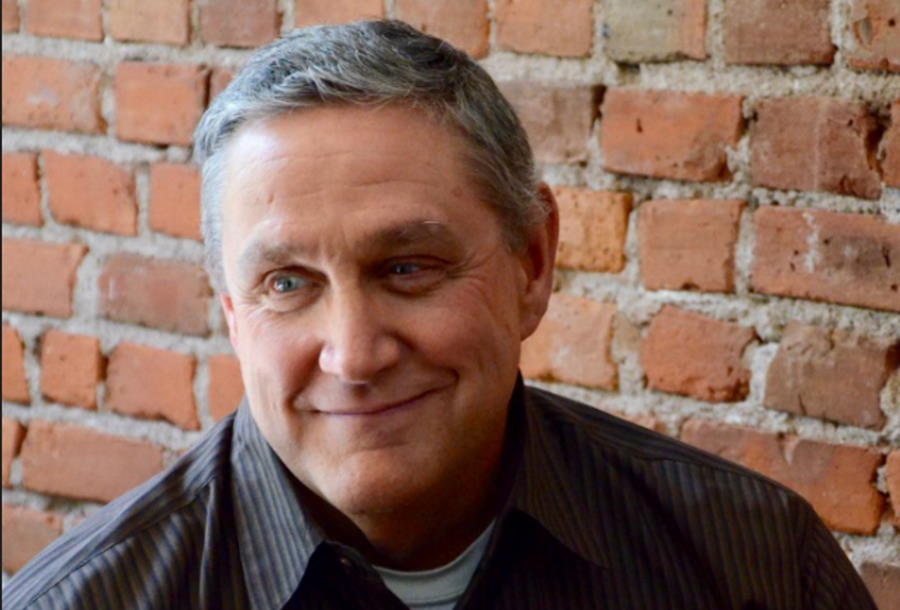
There was no one in my life like her. She was ferocious in pursuit of what she thought was the righteous path, and when I had the good fortune to be on the same path as she was, we had a deep connection. When I was not, she was never afraid to let me know of my failings.
Her absence leaves me wondering how I will ever be able to fill that void. She inspired me to be better, to be less willing to seek harmony and commonality at the expense of pure and fiery virtue. Once I was inside her circle of trusted companions, I was never not in need of the inspiration and guidance she offered.
James Nicola, former artistic director, New York Theatre Workshop
Well Chosen Words
Morgan was my friend, mentor, literary doula, provocateur, confidante, and so much more. They were not afraid of messy. They were not afraid of the truth. Morgan saw my magic before I could. They saw all of our magic.
We would meet for breakfast. Usually in the East Village. After we caught up on personal things, I would describe what I was thinking about or wanting to write about. Words tumbling out, unraveling like thread, exaggerated hand gestures, non sequiturs, a lot of “ums” and “You know what I mean?” I would finally take a breath or a sip of coffee.
And then the silence. Like a cat that’s about to pounce. Nothing but the sound of forks and knives echoing throughout the restaurant. Then they would say it. It was usually one or two words or an image. And that would be my entrance into the world of the play I would write.
In the spring I worked with Morgan on a new piece at People’s Light in Pennsylvania. I am part of their New Play Frontiers residency, where they invite a playwright to meet with local community organizations and create a play based on whatever community and/or theme speaks to them. I decided to write a piece that takes place in a memory care unit in a senior living community. I talked to Morgan about my experience there. I spoke about the frenetic quality, the jagged electricity, how people with dementia or memory loss would jump from one feeling or subject to the next with no segway. “It’s like dreaming,” I said. “Like in a dream you’re in one place, and then boom! It changes just like that.” Then, “I think it’s a chamber play. I think the audience has to be part of it, right in the middle of things.”
Then the silence.
“Sounds like Beckett,” they said.
I now had the entrance into the play.
Lisa Ramirez, playwright and performer
In the Streets
Morgan Jenness was a living legend: activist, performer, dramaturg, puppeteer, good friend, and high priestess of the theatre, guiding, nurturing, and joining so many of us over the years.
I met Morgan during Occupy Wall Street when she saw the giant Lady Liberty puppet that Nathan Leigh and I had furiously made over the previous 24 hours. She approached and asked if we had a group; we said, “Not yet,” and she said: “You do now.”
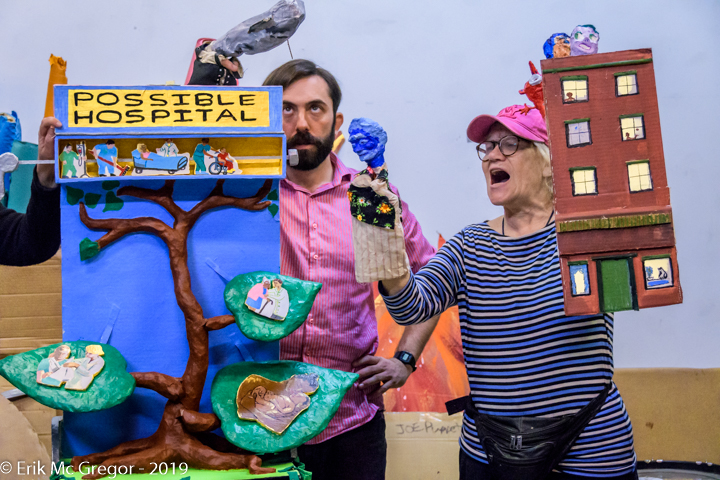
We all became friends instantly (anyone who had the honor of interacting with her knows how friendly and fun she was). Thus the group that eventually became the People’s Puppets of Occupy Wall Street was born. We had many adventures over the years, from performing interactive puppet shows in subway cars, to painting banners and cardboard puppets for hours on end, to marching side by side at countless protests. How she ever fit in everything she did with our group is a mystery to me—and then to fathom the many other lives and relationships she had with so many other activists and artists! She had passion, clarity, wisdom, humor, and power in seemingly unlimited quantities.
Morgan having passed on from this realm is still not something I have totally accepted. She still visits me (and many of us), and her advice and wisdom is still clear as a bell. She was fearless, not only in resisting the rotten empire every chance she got, but fearless in her belief that humanity could and would do better. She was not afraid to hope, and in these times that is something we desperately need. May we all be inspired by Morgan to be fearless in our belief that “We are unstoppable, another world is possible.”
Joseph Therrien, co-founder of the People’s Puppets of Occupy Wall Street & Boxcutter Collective
Irisong
Morgy had eye surgery in June and was so thrilled to see color again. They sent me a startling closeup of their new eye: an image of their face reflected in the pupil, captioned, “Hoping to see myself more clearly.”
How many of us stared into the clear deep pools of their blue irises as they saw the full beyond of our works. The OG doulaturg with the sly smile, Morgy loved Migdalia Cruz’s description of their inhabiting a play, sitting in its skin and organs, and reporting back what the existence of the play felt like.

In the early 2000s, we spent countless hours at Village Karaoke, Morgy summoning new breath to sing her favorites: “Angel,” Sarah MacLachlan, “Danny Boy,” Billie Holiday’s “Summertime,” Louis & Ella’s “Cheek to Cheek,” while I Radioheaded some “Creep” and even witnessed Morgy and David Adjmi rendit “You Don’t Bring Me Flowers Anymore,” as Morgy coaxed their lungs to take on Barbra and Adjmi eventually seduced us with deep gorgeous bass tones after Morgy’s prompting (“Soft eyes, David”).
The night of Morgy’s passing, out of nowhere, I was burning to make a playlist. The six songs came so quickly, so clearly, in sudden order, urgent like a fuse just lit: SZA, This may be the night that my dreams might let me know all the stars are closer; Rihanna, As your shadow crosses mine/what it takes to come alive; Mama Cass, Birds singing in the sycamore tree, dream a little dream of me; Stevie, Now here you go again, you say you want your freedom; Jurassic 5, Hold on to this feeling, Freedom; and Rickie, I’ll see you in another life now, baby/I’ll free you in my dreams/But when I reach across the galaxy/I will miss your company.
Singing from the stars now, Morgy, ain’tcha?
Alice Tuan, playwright, teacher, and performer
Our Burning Torch
I first met Morgan in 1995 when my play A Language of Their Own was produced at the Public, where they were resident dramaturg. I recall struggling with a complicated rewrite during rehearsals. When I turned to Morgan for approval, all they gave was a firm smile and a shake of the head. That one gesture sealed our friendship to this day.
The shorthand to our shared language was instinctual and subtextual, one that never needed explanation. We were kindred souls who lived on the margins of society, where we always had the best view and analysis. A wink, grimace, or a sigh between us spoke volumes. As an immigrant, I also saw Morgan as my American parent. They always had an encouraging word when you least expected one; surrounded you with love when you felt alone; instilled in you a passionate curiosity in every single thing. These were Morgan’s life lessons for all their children.
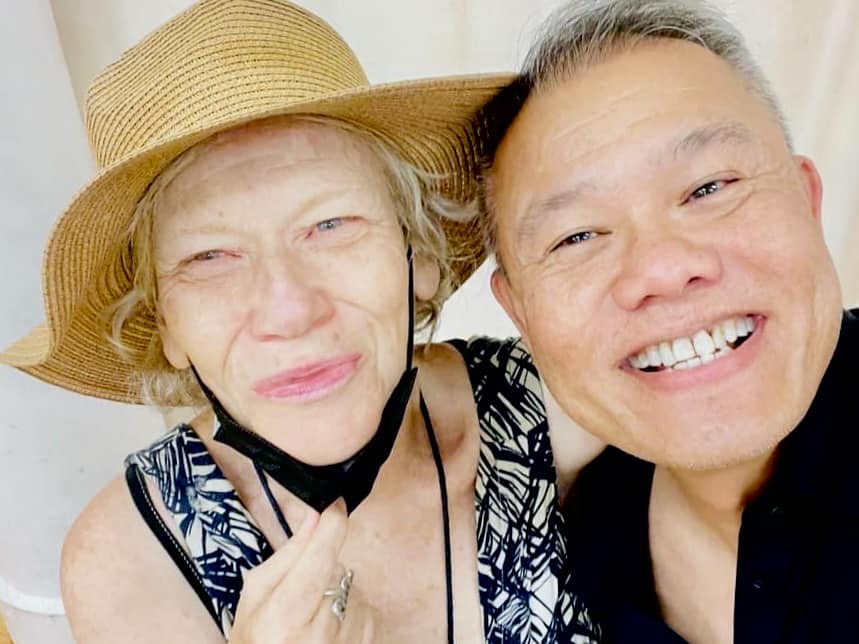
If the occasion allowed, Morgan was also my go-to dramaturg for my directing projects, from Universes’ Ameriville to Jesus Valles’ Bathhouse.PPTX earlier this year. It was truly a joy to collaborate with them and witness their heart and mind churning and bursting with childlike wonderment, embracing new work, form, and artists. Morgan was inspirational and aspirational.
In a way, Morgan saw the key to theatre and life through dramaturgy. She brought a full context to each subject, and surrounded it with immense possibilities towards reinvention and innovation. They always asked hard questions.
Morgan had a word they fiercely loved in the last years: respair. Even they wanted to dramaturg life, in steps, with ideas, finding solutions, lighting the way towards hope.
Like many others whom Morgan has gifted, I hope to continue their legacy. Morgan will always be our burning torch, with a knowing nod.
Chay Yew, playwright and director


